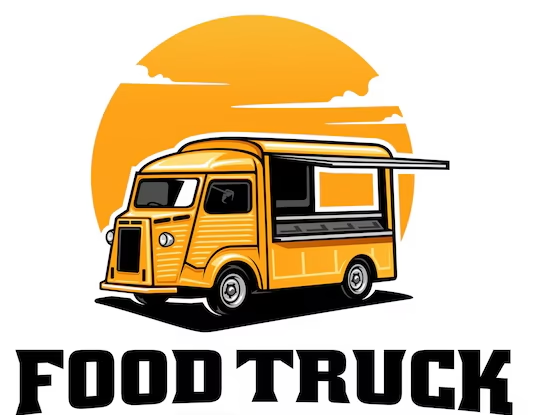Is Rent-to-Own the Right Path to Your Food Trailer Dream?
So, you’ve got thehttp://yourdesignedfoodtrailer.shop culinary vision, the menu ideas are flowing, and you’re itching to hit the streets with your own food trailer. But the upfront cost of buying a food trailer outright is a daunting hurdle. Enter the concept of rent-to-own (RTO). Is it the golden ticket to your mobile food empire, or a tempting trap? Let’s dig in.
What is Rent-to-Own for Food Trailers?
Rent-to-own is an agreementhttp://commercialtrucktrader.com where you lease a food trailer for a specified period, with the option to purchase it at the end of the rental term. You make regular payments (weekly, monthly, etc.), and a portion of each payment goes towards the eventual purchase price.
How Does Rent-to-Own Typically Work?
- Application and Approval: http://craigslist.orgYou’ll apply with the RTO provider and undergo a credit check (though often less stringent than a traditional loan).
- Agreement and Terms: You’ll sign an agreement outlining the rental period, payment schedule, purchase option, and other details.
- Payments: You’ll make regular payments, which cover the rental fee and a portion that applies to the purchase price.
- Maintenance and Insurance: You’re usually responsible for maintenance, repairs, and insurance during the rental period.
- Purchase Option: At the end of the rental term, you have the option to purchase the trailer by paying the remaining balance.
The Allure of Rent-to-Own: Why it’s Appealing
- Lower Upfront Costs: http://usedvending.comThis is the biggest draw. RTO requires little to no down payment, making it accessible for those with limited capital.
- Quick Start: You can get your business rolling quickly without waiting for loan approvals or saving up a large sum.
- “Try Before You Buy”: You get to test the waters with a specific trailer before committing to a full purchase. This allows you to see if the layout and equipment suit your needs.
- Building Credit (Potentially): Some RTO agreements report your payments to credit bureaus, which can help you build or improve your credit score.
- Good if you want to avoid the loaning issues: Loans often takes a while before proceeding and can even have different fees that come with it! This can also be helpful if your credit is down the dumps.
The Pitfalls to Consider: The Downsides of RTO
- Higher Overall Cost: http://facebook.com/marketplaceYou’ll almost always pay significantly more for the trailer through RTO than if you purchased it outright or secured a traditional loan. The interest rates are often very high.
- Limited Ownership Rights: You don’t own the trailer until you complete the purchase. This means the RTO provider can repossess it if you miss payments.
- Maintenance Responsibilities: You’re typically responsible for maintenance and repairs, even though you don’t own the trailer. This can be a financial burden.
- Limited Customization: You may not be able to make significant modifications to the trailer while renting it.
- Strict Terms: RTO agreements often have strict terms and conditions, such as restrictions on where you can operate the trailer or what type of food you can sell.
Is Rent-to-Own Right for You? Factors to Weigh
- Your Financial Situation: Can you comfortably afford the regular payments? Have you considered all the associated costs (insurance, maintenance, permits)?
- Your Credit Score: If you have good credit, you may qualify for a traditional loan with better terms.
- Your Business Plan: http://ebay.comDo you have a solid business plan and a clear understanding of your potential revenue and expenses?
- Your Time Horizon: How long do you plan to operate the food trailer business?
- Urgency Level: Are you wanting to make it a long term career of business.
Alternatives to Rent-to-Own:
- Traditional Small Business Loan: Shop around for the best interest rates and terms.
- SBA Loan: Explore loan options offered by the Small Business Administration.
- Equipment Financing: This type of loan is specifically for purchasing equipment, like a food trailer.
- Crowdfunding: Raise money from friends, family, and the community.
- Leasing: A lease offers the use of the trailer without the option to purchase. This can be good if you only need it for a short time. Leasing ensures low maintenance.
Red Flags to Watch Out For in RTO Agreements:
- Hidden Fees: Be wary of undisclosed charges or fees.
- Predatory Interest Rates: Compare the interest rate to those of traditional loans.
- Unclear Terms: Make sure you understand all the terms and conditions before signing.
- Limited Purchase Options: Ensure you have a clear purchase option at the end of the rental term.
Final Verdict: Proceed with Caution
Rent-to-own can be a viablehttp://bing.com option for some aspiring food trailer entrepreneurs, especially those with limited access to traditional financing. However, it’s essential to do your research, understand the terms and conditions, and carefully weigh the pros and cons before making a decision. Explore all available options, and be prepared to pay a premium for the convenience of RTO. Often there are other alternatives that makes the fees more appealing, so always do the research before jumping into a decision! The cost can really add up with hidden fees, so it is important to find all the documents. Good luck!

